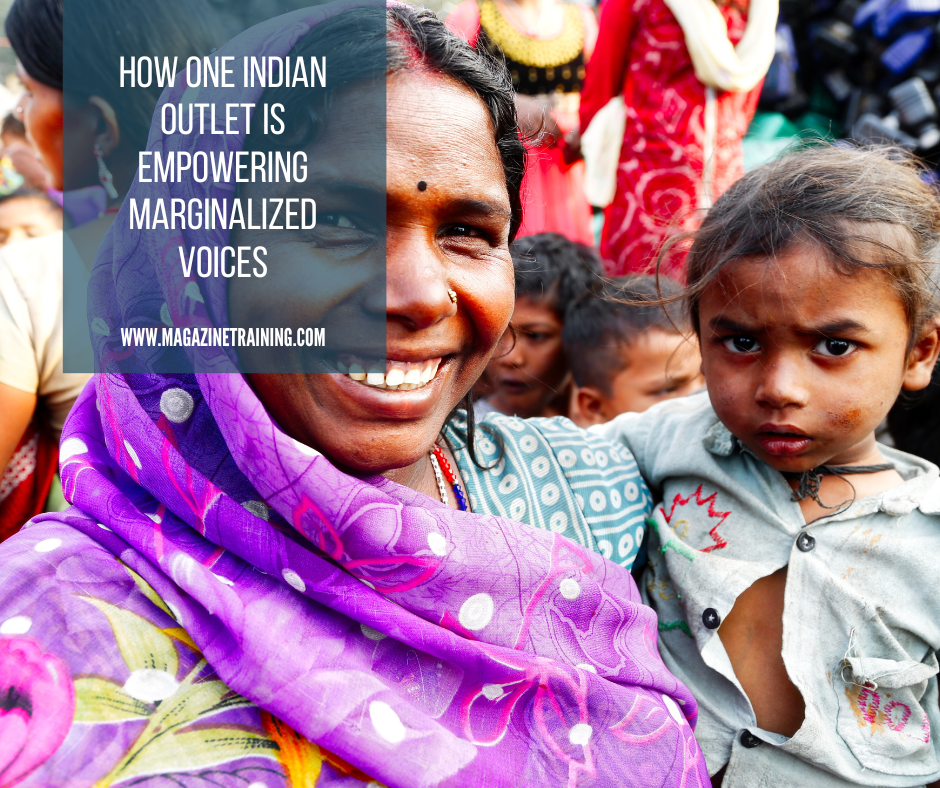
Najir Hussain always dreamed of becoming a journalist. But due to financial constraints, the 40-year old vegetable-seller from the north Indian state of Rajasthan had to give up on his dream, since he was unable to attend college.
However, Hussain’s motivation to become a reporter was reignited during the pandemic when he joined Twitter. On the platform, he witnessed increasing cases of violence against minority communities in India. “I saw many news stories on lynching, police atrocities and caste-based discrimination on Twitter and felt that these are the stories of my people and my village. We see similar incidents in our state, and I immediately felt like I should report on them too,” said Hussain.
But without a degree, Hussain’s desire to report didn’t materialize as editors refused to hire him.
“Even though being active on Twitter made me aware of various media organizations and the kind of journalism they practice, I was unable to understand the intricacies of the hiring process,” he said. “I would just send a simple message to senior journalists saying, ‘Can I join your organization?'”
Hussain didn’t make headway until last September, when Meena Kotwal – the founding editor of The Mooknayak, an independent media platform that reports on marginalization of minorities in India – wrote back to him asking for a few reports.
Hussain’s first story was published last November, and covered the harassment of a boy from a tribal community in his state. Since then, Hussain has written around 20 news stories for The Mooknayak and has a verified Twitter account with 150k followers.
Hussain’s case reflects on the work of Mooknayak as it relies on journalists like him to document the stories of marginalized people.
“Many journalists who come from underprivileged backgrounds and do manual labor contribute to our portal. They may not be affluent in language or oratory, but they report with more nuance on stories since they themselves have been exposed to violence in one form or another,” said Kotwal.
“Bahujan” Media
The driving force behind starting Mooknayak was Kotwal’s own experience with caste-based discrimination, which she faced while working as a single Dalit woman reporter at a major international news organization. Dalits are people considered as “untouchables” as per the rigid caste hierarchy in India.
In India, a rigid social stratification known as the caste system, which is based on traditional or hereditarian occupation of people, leads to social exclusion based on the notion of purity. Caste based discrimination is pervasive in the country, including in newsrooms.
“Going to the office had become a nightmare so much so that I even tried to kill myself twice. Not only was my merit always questioned, but I was also subjected to routine humiliation in the newsroom,” she said.
After calling out her organization for caste-based discrimination, Kotwal said she struggled to get work as she was “boycotted” by many media houses. “It gives you a clear idea of how democratic these so-called progressive newsrooms are,” she said.
After a year and a half of struggling to find work, Kotwal realized that neither the alternative media nor the emerging ‘Bahujan media‘ – a term given to the new media that covers socially discriminated castes – were being run by women from a caste or religious minority. “I wanted to have my own platform and mic to represent my people, so I created one,” said Kotwal.
On Jan. 30, 2021, Kotwal launched The Mooknayak, a news web portal focusing on the issues of India’s marginalized and underprivileged groups – particularly women, Dalits and religious minorities.
For and by the marginalized
Today, Mooknayak is run by a team of 10 members who report and disseminate news related to the oppressed communities in India. Over the last year, the news site has grown rapidly.
“We have seen a continuous increase in the number of people who consume our reportages ever since we started. There is perhaps a sense of connection because of the people who are reporting these stories. They are just like them,” she added.
by
Related posts
Magazine Training International’s mission is to encourage, strengthen, and provide training and resources to Christian magazine publishers as they seek to build the church and reach their societies for Christ.

